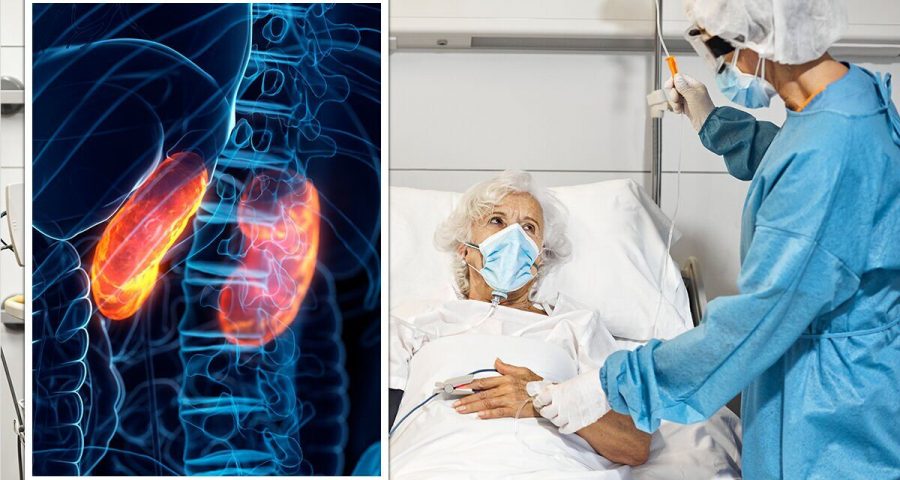Will this UK space breakthrough help us learn more about covid?
We use your sign-up to provide content in ways you’ve consented to and to improve our understanding of you. This may include adverts from us and 3rd parties based on our understanding. You can unsubscribe at any time. More info
Research by the University of Queensland (UQ), in Australia, found a fifth of those admitted to hospital with Covid develop acute kidney injury (AKI). This rises to 40 percent of COVID-19 patients in intensive care. However, UQ PhD candidate and kidney specialist, Dr Marina Wainstein, said the true numbers could be double those figures.
“Doctors look at the amount of urine a patient passes and the level of a compound called creatinine in the blood, which rises when the kidneys aren’t working well,” she said.
“However, if that creatinine rise occurs before a patient presents to hospital, we can miss the AKI diagnosis and fail to manage the patient appropriately in those early, critical days of hospitalisation.”
AKI is a condition where the kidneys suddenly fail to filter waste from the blood, which can lead to serious illness or even death.
It normally happens as a complication of another serious illness and is not the result of a physical blow to the kidneys, as the name might suggest.

The NHS says: “It’s essential that AKI is detected early and treated promptly.
“Without quick treatment, abnormal levels of salts and chemicals can build up in the body, which affects the ability of other organs to work properly.
“If the kidneys shut down completely, this may require temporary support from a dialysis machine, or lead to death.”
Dr Wainstein explained when researchers measured the fall in creatinine levels, which often follows the initial rise, the rate of AKI diagnosis in COVID-19 patients doubled.
“That was a pretty shocking finding,” she said.
Dr Wainstein said “missing” AKI in COVID-19 patients is dangerous.
“Even though the AKI is already starting to improve in hospitals, our research shows that these patients have worse in-hospital outcomes and are more likely to die compared to patients with no AKI,” she stated.
Treatment for AKI can be as simple as checking a patient’s hydration level and stopping medications that can be toxic to the kidneys.

According to the NHS, symptoms of AKI include:
- feeling sick or being sick
- diarrhoea
- dehydration
- peeing less than usual
- confusion
- drowsiness
The study, which was published in PLOS Medicine, used data on COVID-19 patients admitted to 1,609 hospitals across 54 countries between February 15, 2020 to February 1, 2021.
Study supervisor, Dr Sally Shrapnel, from UQ’s school of mathematics and physics, said collecting and analysing data for the project during the pandemic proved challenging.

“Typically data scientists work with complete, well curated registry data, but in this project it was collected by hospital staff working under extremely onerous conditions in a variety of different resource settings,” she added.
She believed a more comprehensive definition of AKI – one which can detect cases that develop in the community – needs to be implemented as soon as possible.
Dr Shrapnel concluded: “Now we have the data showing a large gap in AKI diagnosis exists, it’s time to test this definition in a clinical trial so we can identify all AKI patients early and hopefully prevent these awful outcomes.”
Up to May 20 this year, there were 22,238,713 reported cases of COVID-19 in the UK and 177,977 deaths within 28 days of a positive test.
Source: Read Full Article
